
They’re not the same thing
On TV, in magazines, or online, ads for medications that treat acid reflux vs. heartburn vs. GERD can make these conditions seem like they’re interchangeable. They’re not. And with so many over-the-counter (OTC) treatments available, you might think your post-meal pain is something you can treat on your own. Maybe. Here’s what you need to know about these three distinct issues. (Don’t miss the 21 health secrets your gut is trying to tell you.)
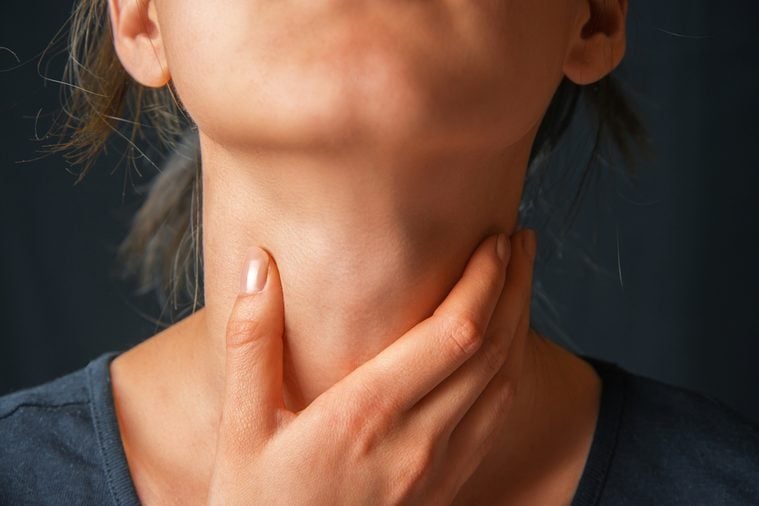
Acid reflux
Acid reflux describes the condition in which acid and food from your stomach creep up into the esophagus, the tube connecting your stomach to your throat. When all is well, there’s only one way the food and stomach acids can go, and that’s down. But when you have acid reflux, that acid reverses direction. Sometimes you’ll taste sourness, and maybe even a bit of the food you just ate, in the back of your mouth.

Heartburn
That burning sensation right in the middle of your chest, behind the breastbone, actually has nothing to do with your heart. It’s your esophagus that’s suffering. Experts used to think the sensation resulted directly from stomach acid, but a study published in 2016 in JAMA suggests that the acid reflux stimulates the esophagus to produce cytokines—cell signaling molecules that are key in immune response and stimulate cells to hone in on sites of inflammation, infection, and trauma. All of this sets the stage for the inflammatory process. So heartburn can be a symptom of acid reflux, though some people with acid reflux may not feel any pain in their chest at all. If you do feel the burn, these 8 home remedies can ease your heartburn symptoms.
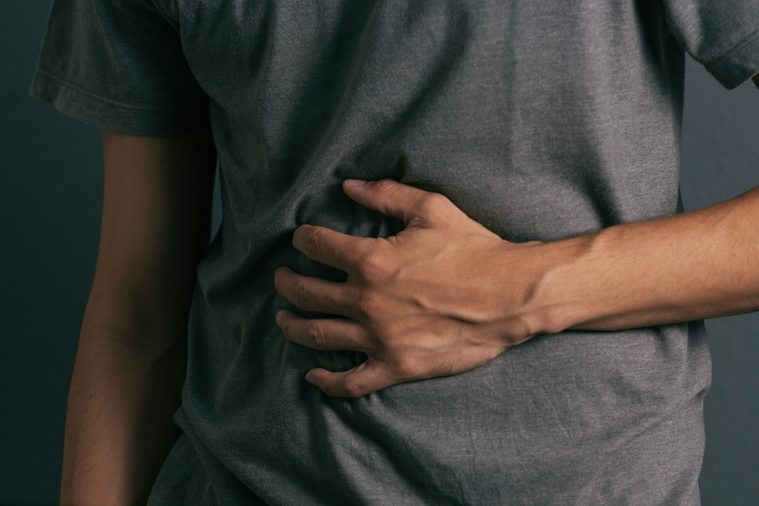
GERD
Short for gastroesophageal reflux disease, this is what you get when acid reflux stops being an occasional event and starts becoming chronic. Whether the reflux has been flaring up twice a week for more than two weeks, or less frequently than that, the condition is considered GERD whenever reflux causes troublesome symptoms and complications that impact your quality of life, says Stuart Spechler, MD, co-senior author of the JAMA study and chief of the division of gastroenterology at Baylor University Medical Center in Dallas, Texas.

The difference between acid reflux vs. heartburn vs. GERD
So the answer to the differences is that acid reflux is what causes that feeling of heartburn. If it goes on long enough or happens frequently and interferes with sleep or other aspects of your life, you have GERD—the chronic version of acid reflux. These are the 6 silent signs you have acid reflux.

What causes reflux?
Normally, a muscle called the lower esophageal sphincter acts as a one-way valve between the lower esophagus and the upper stomach. It relaxes to let food slide down but then seals to stop stomach acid or partly digested food from traveling in the wrong direction.
This efficient system can malfunction, typically when there’s too much pressure in your abdomen. This can happen if you’re pregnant or overweight. You’re also susceptible if your stomach is temporarily distended because you ate too much, or you have a condition called hiatal hernia, in which there’s an opening in the diaphragm that causes the upper part of the stomach to move up to the chest.
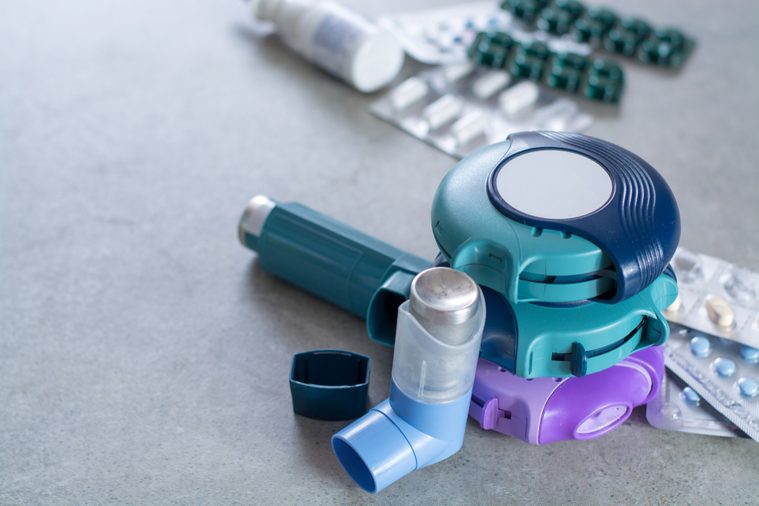
The wrong Rx
Some drugs can weaken that esophageal sphincter: Asthma treatments, calcium channel blockers for high blood pressure, antihistamines, narcotics (like codeine), and tricyclic antidepressants.
Some drugs irritate the esophagus directly. So while they won’t cause acid reflux or GERD, they can cause heartburn pain. These include certain antibiotics (like tetracycline) oral bisphosphonates (like Fosamax, Boniva, and Actonel), iron supplements, ibuprofen, and potassium supplements. If you suspect your meds are to blame for your heartburn, talk with your doctor about other options. There are also lifestyle changes you can make that will help. Learn how the Mediterranean diet is better for your heartburn and GERD than any other medication.

When it’s an emergency
Acid reflux, heartburn, and GERD can all be annoying, but they rarely require immediate attention. However, if you experience any of the following symptoms in combination, get help right away: chest pain, choking, trouble swallowing, weight loss, vomiting blood or a substance that looks like coffee grounds (an indication of bleeding), or you have red or black stools.

OTC solution: Antacids
The first line of treatment for an attack of acid reflux is usually an antacid (for instance, Maalox, Mylanta, and Rolaids). These work on an as-needed-basis by neutralizing stomach acid. “The effect is very short-lived, so it’s best to use them right after a meal, for situational symptoms,” says Gary W. Falk, MD, spokesperson for the American Gastroenterological Association and a professor of medicine at the Hospital of the University of Pennsylvania, in Philadelphia. For mild to moderate cases of acid reflux, you’ll often feel relief immediately. These natural remedies for heartburn relief may help silent acid reflux too.
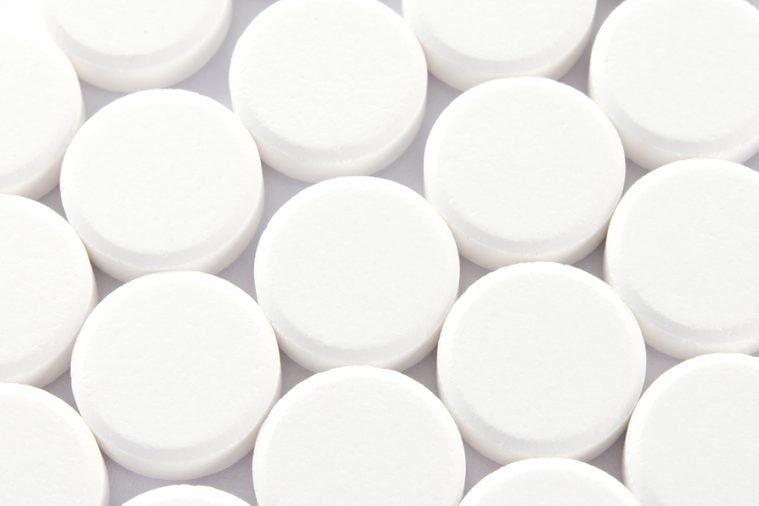
OTC solution: H2 blockers
Tagamet HB, Pepcid AC, and Zantac 75–just some of the medications available over the counter or by prescription–assist by targeting the source: They slow the production of acid in the stomach. You can take these before eating foods that cause problems; however, says Dr. Falk, “the best thing to do in the first place is to avoid the foods that have been known to give you heartburn.”

OTC solution: Proton pump inhibitors (PPI)
The next line of treatment consists of PPI drugs such as Nexium, Prevacid, and Prilosec. These drugs, which are taken instead of H2 blockers, also come in prescription strength. Like H2 blockers, they lower the amount of acid made by the stomach, but they’re a bit more potent and work over a longer period of time. Don’t worry—you’ll still be able to digest a meal. “These drugs don’t completely eliminate acid, so your stomach will still be producing sufficient levels to process food,” says Dr. Falk. Taken every day (as opposed to as-needed, which is the case with OTC treatments), they’re useful for those with full-blown GERD.
“They’re among the safest drugs available when used short term,” says Dr. Spechler. “The side effects we see with short-term use—things like headaches and diarrhea—are mild and easily managed. However, there are potential risks for PPIs when they are taken long term.” Some of the problems include magnesium and vitamin B12 deficiencies, severe diarrhea, kidney inflammation, dementia, and bone fractures. Discover how your medication could be making you depressed.

Prevention: Weight loss
It’s not always easy, but modifying certain behaviors might prevent acid reflux and heartburn—whether you’re prone to the occasional episode or suffer from full-blown GERD. For one thing, you can avoid factors that cause the stomach to distend, such as maintaining a healthy weight.

Prevention: Eat less fat
Fatty foods tend to sit in your stomach and distend it more than non-fatty foods, says Dr. Spechler. He notes that they can also weaken the muscle of the lower esophageal sphincter. You might also try eating more-frequent smaller meals than less-frequent larger ones and avoiding bedtime snacks. These are the foods you want to avoid eating if you have acid reflux.

Prevention: Sleep position matters
It may also help to have gravity on your side: Raising the head of your bed by about eight inches helps during sleep; merely elevating your head with pillows does not help, however. Sleeping on your left side could also keep stomach acids separate from the valve. While it can be hard to maintain the position throughout the night, specially made body pillows can help. A study published in 2015 in the Journal of Clinical Gastroenterology suggests that such pillows could prove useful. What could also help keep acid down where it belongs: not going to bed soon after dinner, and, instead, staying upright (no slouching!) for at least three hours. Don’t miss these 13 doctor-approved tips for a better night’s sleep.

Prevention: Keep a food journal
Different people react differently to foods, so it can help to detect your own patterns with a food journal. Carbonated beverages, which may distend the stomach, are a common culprit. Other factors may include alcohol, chocolate, peppermint, and the nicotine in cigarette smoke—all of which may relax the sphincter, leaving acids to leak past it. Improved reflux is just one of the 15 ways your body heals after you quit smoking.
For some people, certain foods may irritate the esophagus directly, causing the sensation of heartburn, though not reflux. These include acidic foods such as citrus and tomato. Spicy foods can be problematic, too. However, says Dr. Spechler, it’s rare to feel the burn if you have a healthy esophagus to begin with—typically that sensation occurs with these foods because your esophagus is already sensitive as a result of acid reflux. Here are more foods that can wreak havoc on your digestive system.
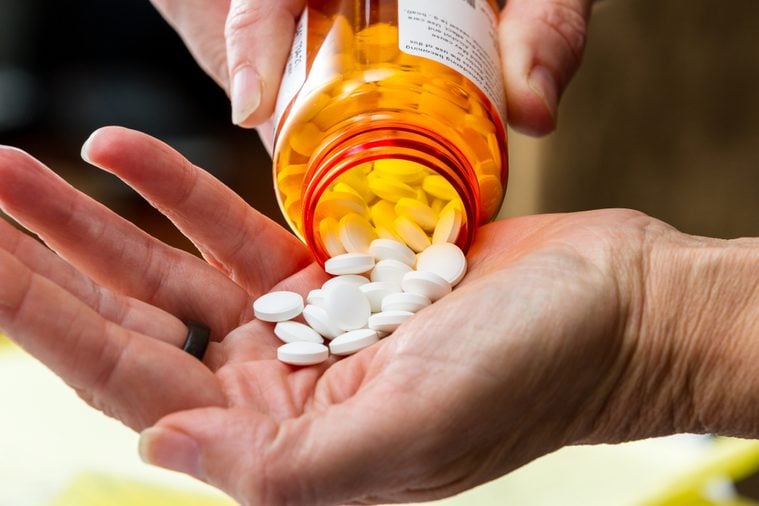
Prescription treatments
If you’re relatively young and you describe what sounds like typical heartburn, your doctor will be fairly certain you have GERD and might suggest prescription-strength H2 blockers or PPIs.
“These drugs suppress stomach acid,” says Dr. Spechler. “And people, in general, are able to tolerate them very well.” The catch is the side effects, especially for the PPIs. “There’s no free lunch,” he says. “All drugs have risks, but the potential dangers of PPIs may also be exaggerated. The studies that have identified these potential problems are not definitive,” he says, “and can only identify associations between PPIs and problems, but not that the PPI caused the problems.” Talk to your doctor about potential risk.
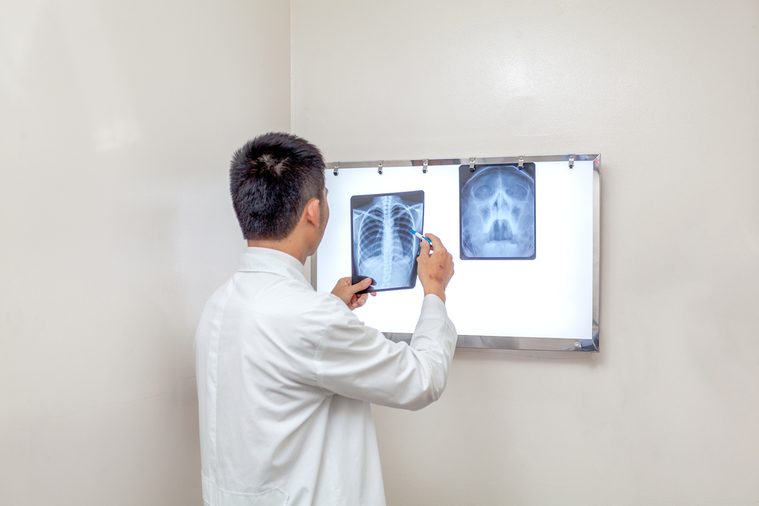
What happens if medications don’t work
The drugs are typically effective; if you’re taking them and not feeling better, your doctor may perform an endoscopy to make sure there isn’t another cause for your reflux and heartburn: A thin tube with a camera is inserted down your throat (don’t worry, you’ll be sedated) so the doctor can check whether your esophagus is inflamed; it’s also an opportunity to collect a tissue sample to make sure you don’t have more serious issues such as Barrett’s esophagus—a GERD complication in which the esophageal cells start resembling intestinal cells, raising the risk of esophageal cancer.
Another way to see what’s going inside the chest is by doing an ambulatory acid (pH) probe test: A pH sensor placed in your esophagus monitors when and for how long the stomach acid flows up into your esophagus. Other tests involve measuring the contractions in your esophagus (via what’s known as an esophageal manometry) or performing an X-ray.
Besides making sure there aren’t complications, these tests also help confirm that you definitely have GERD and whether surgery might help. Fundoplication is a minimally invasive laparoscopic procedure in which the surgeon wraps a portion of the stomach around the lower esophagus to keep the valve closed when it should be.
A study published in 2018 in World Journal of Surgery found that a newer option called magnetic sphincter augmentation results in significantly reduced reflux symptoms. This less-invasive surgical procedure implants a ring of magnets—about the size of a quarter—at the junction of the stomach and esophagus. It expands to let food in, then tightens after you’ve eaten. There are potential side effects like difficulty swallowing—not to mention eliminating the possibility of ever getting an MRI.
Don’t miss these 8 important medical reasons why you should never ignore severe heartburn.
